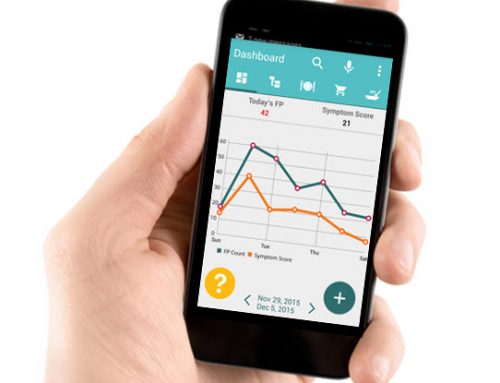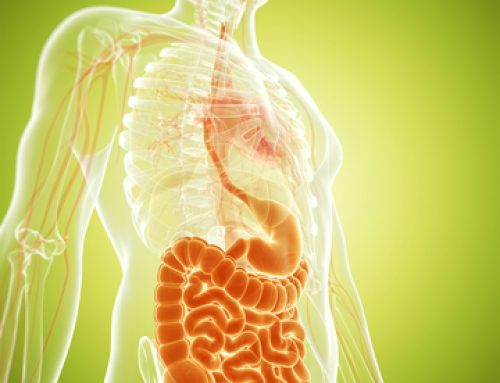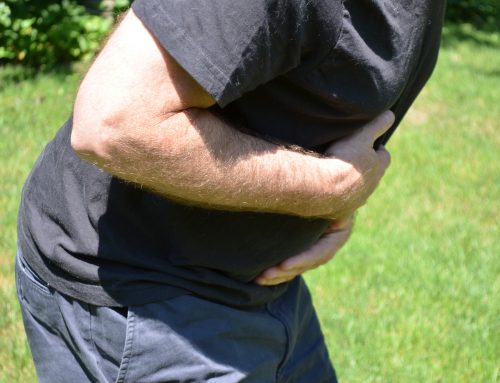Note: If you haven’t read it, you may be interested in this comprehensive article on Crohn’s Disease and Diet.
Fecal microbiota transplantation (FMT) involves the replacement of the entire population of dysfunctional gut bacteria (gut microbiome) with healthy bacteria from healthy donor stool. The technique has been incredibly successful (90-98%) and safe for treating C diff infections caused by the bacteria Clostridia difficile. The question on everyone’s mind is what else can this procedure be used for. Clearly, conditions involving gut dysbiosis (unbalances in intestinal bacteria) make sensible targets. Early reports are promising for treating the other inflammatory bowel disease, ulcerative colitis, but what about Crohn’s disease?
Crohn’s disease is an inflammatory bowel disease (IBD) that affects approximately 600,000 people in the US. Despite extensive research, the exact cause of Crohn’s disease remains unknown. People with Crohn’s have various mutations (NOD2, ATG16L1, IL-23, IL12B, STAT3 and NKX2-3) in their genes that healthy people don’t have. Expression of the altered genes affects how bacteria interact with the intestinal surface and how our immune system interacts with these adherent bacteria.[ii] An imbalance in intestinal bacterial developing in response to the genetic abnormalities present in Crohn’s, may be the trigger for damaging inflammation characteristic of Crohn’s disease. One thing is clear – People with Crohn’s have an altered microbiome suffering a 50% decrease in the diversity of gut microbes including the loss of bacterial species Bacteriodes, Eubacterium and Lactobacillus.[iii]A separate study also observed depletion of commensal bacteria, notably Firmicutes and Bacteroidetes bacterial types.[iv] A third study observed a decrease in Bacteroides bacteria and a decrease in bacterial end products. These studies point to a significant imbalance or gut microbes in people with Crohn’s disease. This imbalance may help explain the higher incidence of Clostridia difficile infection in people with inflammatory bowel disease.[v] According to this CBS Boston News article, Dr. Alan Moss, Associate Professor of Medicine at Harvard Medical School and Beth Isreas Deaconess Medical Center is leading the effort to see if fecal transplantation can help people with Crohn’s disease. Though the results from this ongoing clinical trial are not available, one of the patients in the study had this to say: I see this as a major breakthrough in medicine by treating patients naturally, and it makes perfect sense. I’ve been eating and drinking whatever I want, and the Crohn’s symptoms I typically would have at this time are either minimal or nonexistent—symptoms such as sharp pain in my colon, cramps, bleeding ulcers, lethargy, joint pain, and diarrhea.” Whether or not this treatment will work for Crohn’s, and how long the benefit will last are open questions, but there is reason to be optimistic. [i] Kappelman MD, Moore KR, Allen JK, Cook SF. Recent trends in the prevalence of Crohn’s disease and ulcerative colitis in a commercially insured US population. Dig Dis Sci. 2013 Feb;58(2):519-25. [ii] Podolsky DK. Inflammatory bowel disease. N Engl J Med. 2002 Aug 8;347(6):417-29. [iii] S J Ott, M Musfeldt, D F Wenderoth, J Hampe, O Brant, U R Fo¨lsch, K N Timmis, S Schreiber. Reduction in diversity of the colonic mucosa associated bacterial microflora in patients with active inflammatory bowel disease. Gut 2004;53:685–693. [iv] Frank DN, St Amand AL, Feldman RA, Boedeker EC, Harpaz N, Pace NR. Molecular-phylogenetic characterization of microbial community imbalances in human inflammatory bowel diseases. Proc Natl Acad Sci U S A. 2007 Aug 21;104(34):13780-5. [v] Navaneethan U, Venkatesh PG, Shen B. Clostridium difficile infection and inflammatory bowel disease: understanding the evolving relationship. World J Gastroenterol. 2010 Oct 21;16(39):4892-904. Note December 3, 2014: To Track this study, check out this link.







Good news to be sure anxious to see the full trial results.
For sure Danny. And will any improvement be lasting? My gut says you won’t be able to eat what ever you want regardless.
Do you think that FT could be a cure for SIBO too?
Hi Elle,
Probably not a cure if the underlying cause(s) are not addressed. Fast Tract Digestion covers these underlying causes and how to address them. It would most likely make a big improvement though. The reason it cures C. diff. is because you have single species of bacteria, normally not present in most people’s gut in high numbers. Once you get rid of it, you’re fine if you don’t get re-infected.
Is there any evidence that using healthy family fecal matter for transplant is superior for Crohn’s disease?
Have another patient with chronic constipation.is there any evidence FT could help her?
Thank you Norm,
Anne ,family physician Sydney
Hi Dr. Amigo, Thanks for two interesting questions. Sorry, I don’t know of any work at all specifically employing fecal matter from a family member for transplantation in Crohn’s. Nor have I heard of FMT testing for constipation, though intuitively it makes some sense at least in cases where constipation is linked to methane-positive breath testing indicative of M. Smithii overgrowth.
I would love you to read my son’s story! He was diagnosed with widespread Crohn’s Disease just before he turned 13. He is now 16 and has had over 130 FMT enemas. He has been off imuran since February 2013 (15 months) and has absolutely no sign whatsoever of Crohn’s Disease, clinically, or histologically. His doctor is Professor Borody, a pioneer of FMT.
Part 1 https://www.fecalmicrobiotatransplant.com/2013/11/crohns-cure-fecal-transplant.html
Part 2 https://www.fecalmicrobiotatransplant.com/2013/07/crohns-disease-fmt.html
Hi Mom,
Thank you for posting. I just read your amazing story of your son’s extended remission through FMT. I met Dr. Borody last year at a meeting in the states. He is truly a pioneer and a big reason FMT has gained so much attention for treating conditions other than C. diff infection, but success stories like your own drive home the importance of pursuing more studies using this procedure for Crohn’s. I hope your son will be able to remain free of Crohn’s for life with this strategy.
I agree Norm, studies are definitely needed – and I hope they aren’t short term studies where they use FMT for say a couple of treatments. I think one of the keys to success is long term FMT for Crohn’s Disease (it seems to be more stubborn)… then of course there’s the important question who makes a good donor? A donor’s microbiota may not work at all if they don’t have the diversity or specific organism needed to reverse Crohn’s – and this is something that needs unravelling! A great piece on Prof. Borody, FMT and Crohn’s Disease featured on the news in Australia recently https://www.abc.net.au/lateline/content/2014/s3966636.htm It’s very exciting to be part of the forefront in the revolution of medicine!
Thanks Mom, Just watched. Very exciting possibilities.
This seems very promising. I am actually meeting w/ a doctor next month to explore this very treatment. I have been living w/ CD for 20 years now (I am 36 yr old male) and it has held me back in life in several ways…. I am cautiously optimistic.
I suffer from what is described as Chrons disease. I am interested in at least trying a fecal transplant. Are there other countries doing this? Are there experimental programmes I could be involved with? Desperate to salvage some of the life I have left.
Hi Robert,
Here’s a study actively enrolling patients in Canada. https://clinicaltrials.gov/show/NCT02199561
Another good source of information is Thomas Borody, the father of modern FMT in Australia.
Has anyone one with crohn’s had the fecal transplant who had surgery before?
Prior colon surgeries?
I have Crohn’s disease but my GI doctor refuses that treatment. I live in NJ but I am not sure how to find a doctor that will treat me with this. Any website I could use to find one? I am desperate. I do not believe on being on so many drugs to to take care of the symptoms.
Thank you,
TeeWoo
Any results published from that trial yet?
Good question Sean. I looked for an update on clinicaltrials.gov. They are no longer enrolling and had planned to have all the data as of Sept 2014. Not sure when the results will be published. I added a link at the bottom of the article for people who want to check on the study for updates.
My son has Crohn’s and now has c-diff. Would love to find a doctor in my area or within driving distance that would be willing to use FMT instead of the Remicade and imuran. If anyone know one near Alabama please post. Or email me @ wardcave3@aim.com